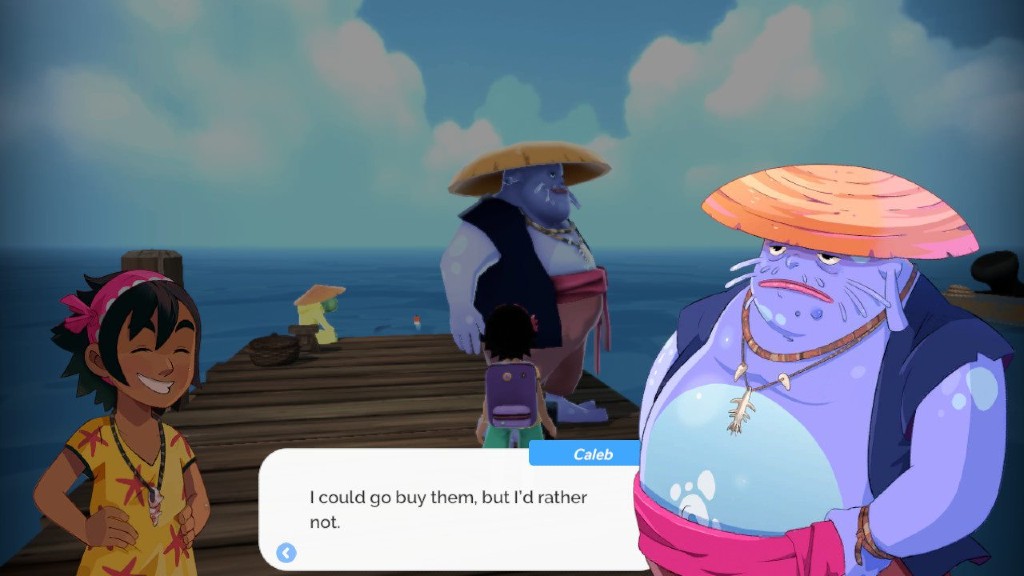
All adventure games are fetch quests when you really get down to it. The magic of playing those games, however, is the feeling that completing that seemingly-endless list of tasks is worth it in some way. The characters grow, maybe you grow or unlock new abilities or parts of the story. In a world full of potential distractions, video games occupy a space between the idle and the pointless. It’s not passive entertainment, and though the effort they require effort may only create results trapped inside the game itself, it feels worthwhile because of the journey taken.
When that magic isn’t there, though, the tedious nature of what video games are can be difficult to ignore. Unfortunately that’s the case with Summer in Mara, an adorable seafaring exploration game that never feels like more than the sum of its mechanics. The Chibig Studios release hit consoles in mid-June and offered a sunny adventure title where a little girl, Mara, explores a world of islands and magical secrets.
Early looks at the game drew comparisons to the sprawling Breath Of The Wild, and while comparing it to a massive Nintendo title is unfair it’s safe to expect at least a remotely compelling story to drive the experience of playing an adventure title. But despite some gorgeous cinematics and mystery, Summer In Mara never escapes the feeling you’re chasing things down for the sake of little more than passing time.
Perhaps the problem is an attempt to be too many styles of game. It has farming simulation and an exhaustion meter, a la Stardew Valley. But unlike that indie darling, or even the day/night mechanics of a game like Animal Crossing, it never feels like that passage of time means much of anything in relation to the tasks of the actual story. Growing crops takes time and people need to sleep, but you often find yourself “going to bed” early in a day just to advance the calendar.
Sailing is a main aspect of the game, but while initially exciting it quickly becomes a drag. So much of the game is sailing between islands to do a single thing, or sleeping in a boat just to complete a task before having to sail to another island and back in order to complete another. You craft for the sake of crafting, make dishes because other characters are simply too lazy to do the same and find items useless other than to be a macguffin that continues the story in no otherwise meaningful way.

The game tries to be funny and colorful and sweet, and it’s definitely two of those things. But the childishness and vivid palate only slightly masks the completion of tasks for the sake of checking them off a list. And those tasks often don’t flow very elegantly from one to the next. Rather than a sense of limitless potential like some adventure games, the feeling is more about aimless sailing, backtracking and running across islands as quickly as possible to move on to the next task to complete.
After a while, the most satisfying task was to just try another story entirely.
